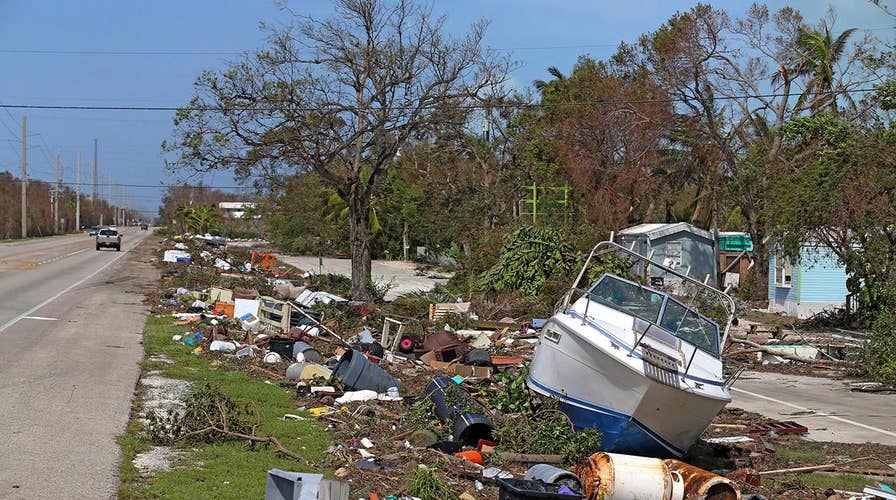Florida Keys residents survey the devastation after Irma
FEMA estimates 25 percent of the homes in the Keys have been destroyed and even more have been damaged; Adam Housley reports on 'Special Report'
Like many Americans during the past three weeks, I've been bombarded by news about the destructive power of Hurricane Harvey in Texas and Hurricane Irma in Florida. The stories are of misery, death and destruction.
The misery, death and destruction are acutely difficult to accept because they have been visited upon innocents. I say that knowledgeable of the ancient argument that our personal and collective sinfulness has merited our pain. Yet that raises this question: Does anyone really deserve personal ruination because of personal sin, particularly from a God whose Son said he came to call sinners and not the just?

Cherie Ethier sits in her mobile home with her pets surrounded by floodwater, in the Marco Naples RV Resort in the aftermath of Hurricane Irma, in Naples, Fla., Tuesday, Sept. 12, 2017. (AP Photo/Gerald Herbert) (AP)
Stated differently, why does an all-knowing, all-loving, all-powerful God permit innocents to suffer in natural disasters?
This question has occupied philosophers for millennia. The natural order of things has revealed that we all have free will, and we know from our experiences that we can easily abuse that free will. The individual will is so free that we can use it to do magnificent things or horrific things.
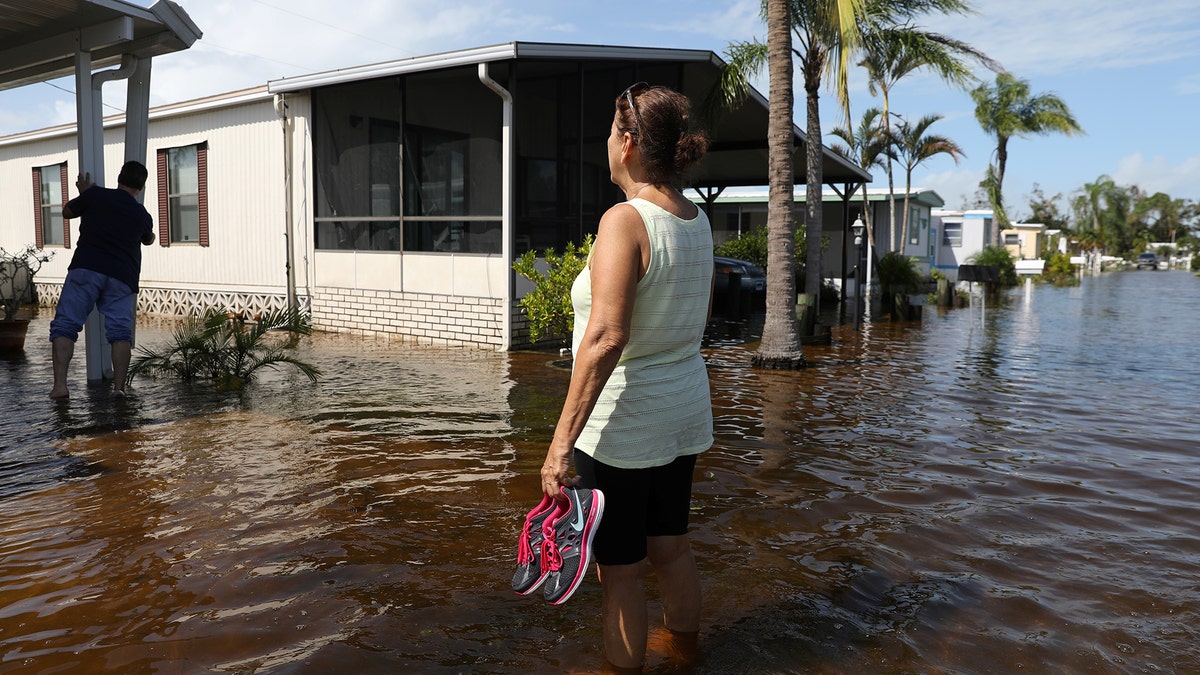
Marie Powell surveys damage to her property at a mobile home park after Hurricane Irma in Naples, Florida, U.S. September 11, 2017 REUTERS/Stephen Yang - RC118E108E70 (REUTERS)
But a natural disaster is not the handiwork of anyone’s free will. Could it really be the handiwork of an angry God impatient with the manner in which we have abused free will? This argument is not a logical extension of Christian teaching, unless God is terribly inconsistent with His impatience over human failures and errors and has somehow overlooked and not yet grown impatient with the world’s worst monsters.
Why the natural disasters? We know from the exercise of our reason that the curvature of the Earth and its continuous movement through space set in motion a series of forces. These forces protect the Earth and its inhabitants from the harmful rays of the sun and permit the intrusion of the beneficial rays. All this comes at a price. The movement of the Earth actually produces friction, and that friction in turn ignites energy, and that energy often is drawn by the Earth’s gravity and finds an outlet in destructive forces on the planet.
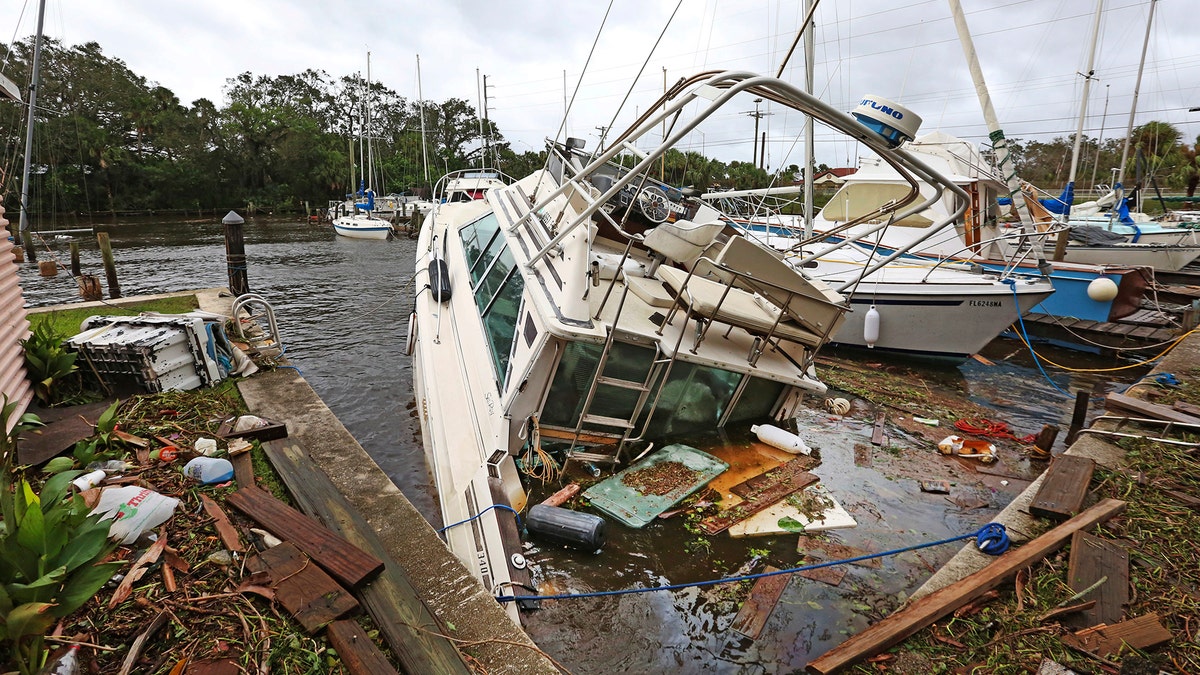
A sinking boat is surrounded by debris in the aftermath of Hurricane Irma at Sundance Marine in Palm Shores, Fla., Monday, Sept. 11, 2017 (Red Huber/Orlando Sentinel via AP) (AP)
Though these forces -- the linchpin of which is the Earth’s gravity -- can be avoided through the exercise of creative reason (we can build shelters from them), they are often, as with Harvey and Irma, beyond our ability to harness or control. All this is a thumbnail sketch of basic astrophysics, largely acquired through human reason and beyond serious dispute.
But the disputed philosophical questions remain. What force set all this in motion? What caused the big bang in the first place? What caused the Earth’s gravity? What tipped over the first domino that billions of years later triggered the explosions of energy that eventually became Harvey and Irma?
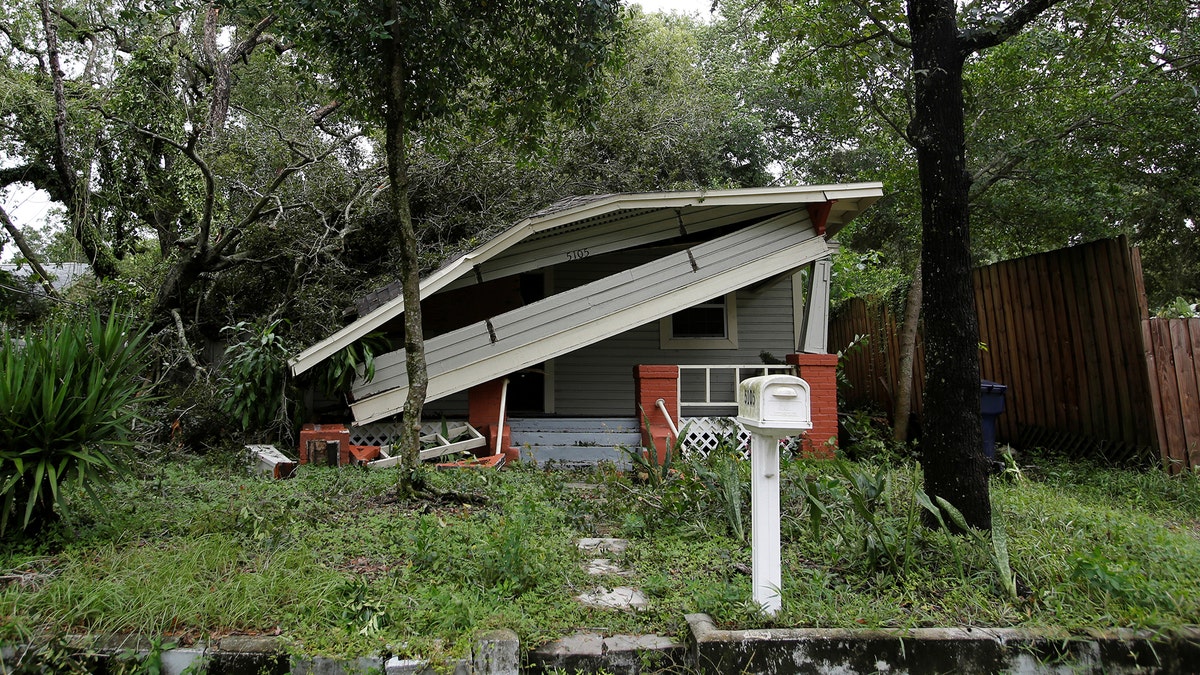
A home damaged by a tree is seen after Hurricane Irma made landfall in Tampa, Florida, U.S., September 11, 2017. REUTERS/Chris Wattie - RC191FE2E410 (REUTERS)
We know from reason that every effect had a cause. You plant grass seed and water it and the effect is blades of grass. The cause was the interaction of the seeds and earth and rain and sun brought together by the free will of the person who did the planting. There are infinite examples of this. Yet is there any cause that was uncaused? Yes. That is the all-knowing, all-powerful, all-loving uncaused cause, whom most of us call God the Father.
Now back to the question posed earlier. If God the Father created us and loves us, why does He permit natural forces that He set in motion to harm and even to devour us? A similar question was actually addressed by our Lord Himself when he was approached by biblical scholars who asked about a young man who was blind from birth. The question they put to Jesus was: Whose sinning caused this man to be born blind? Was it the man himself or his parents?
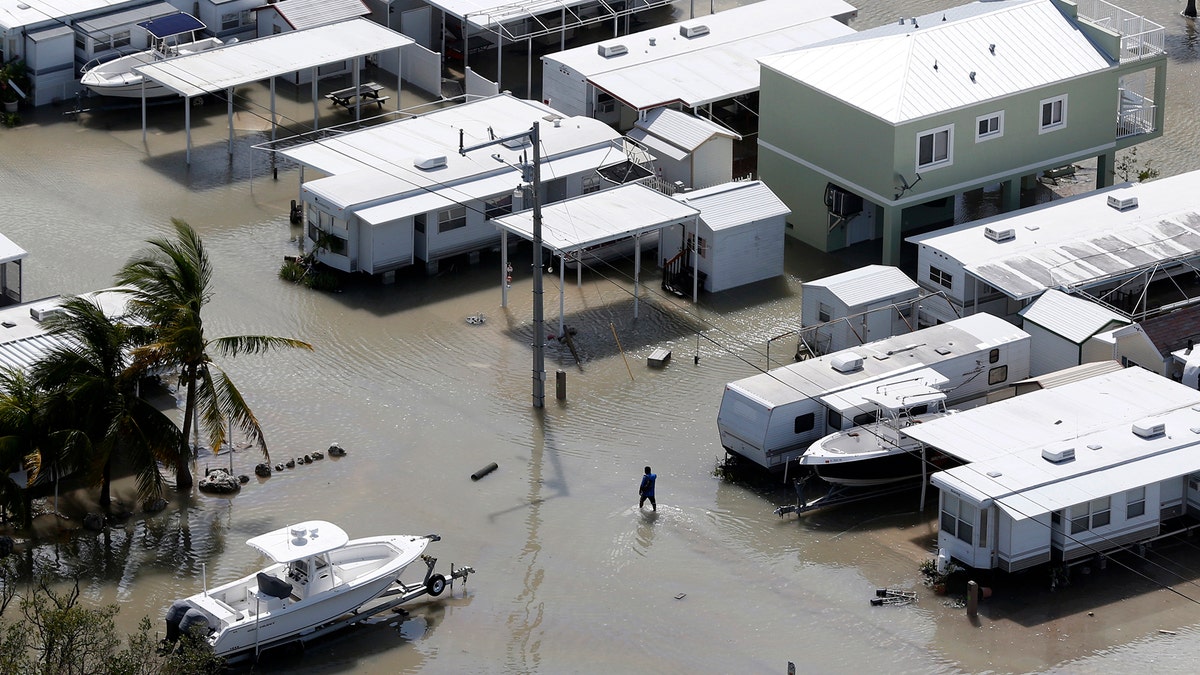
A person walks through the flooded streets of a trailer park in the aftermath of Hurricane Irma, Monday, Sept. 11, 2017, in Key Largo, Fla. (AP Photo/Wilfredo Lee) (AP)
The question may have been an attempted trap. Yet Jesus answered by saying essentially that no one's sins caused the blindness. Rather, he was born blind so that the works of God could be made manifest in him. In other words, he was born blind so that Jesus could cure his blindness publicly -- as he did -- and thereby enhance the faith and understanding of all who learned of this and believed it.
Of course, not all who learned of the cure of the blind man believed in Jesus' divinity. Some thought he was a charlatan performing tricks, and some thought the young man was never really blind. Their skepticism and doubts caused G.K. Chesterton to remark that “the Christian ideal has not been tried and found wanting. It has been found difficult; and left untried.”
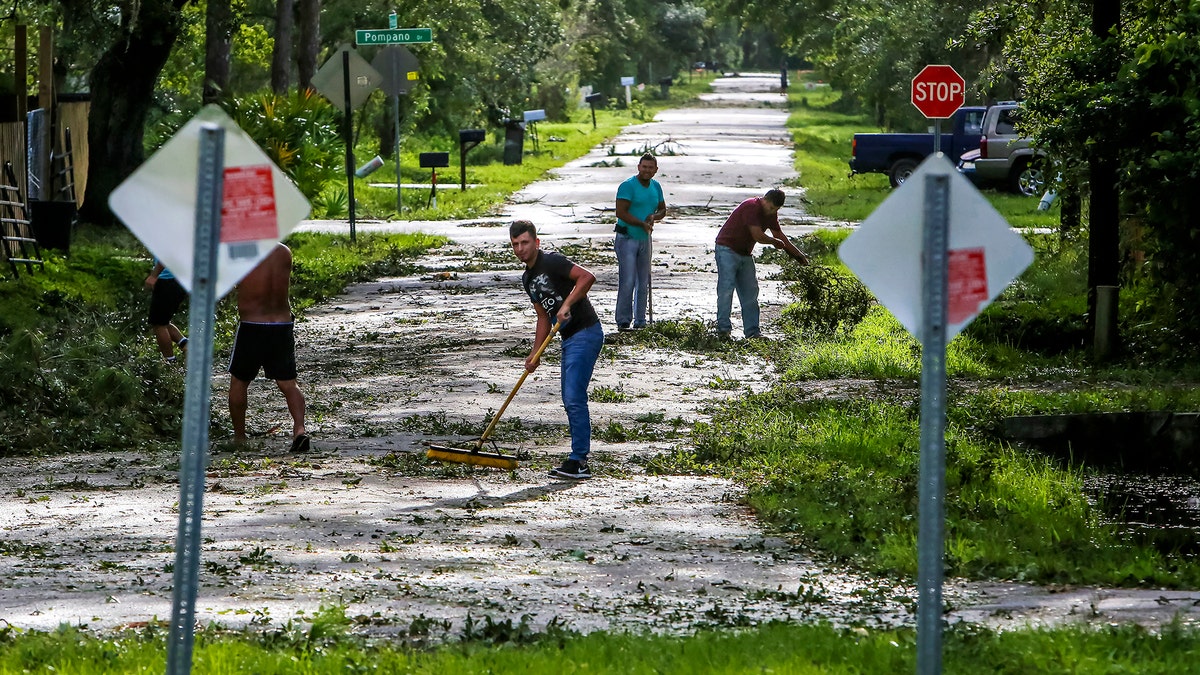
Neighbors help each other clear their road of debris in Kissimmee, Fla., Monday, Sept. 11, 2017, as residents begin to clean up after Hurricane Irma plowed through the state. (Jacob Langston/Orlando Sentinel via AP) (AP)
Chesterton recognized that we are free to believe or to reject belief. To those who believe in the all-loving God, we know that from time to time, He manifests Himself to give us a need to embrace Him, just as He did with the man born blind. That embrace is the test of faith. It was manifested in countless unseen acts of generosity and selflessness -- from believing stranger to believing stranger -- in Texas and in Florida.
I can hear the prayer of the faithful in pain. "O Lord, I prayed that the hurricane would not destroy my home, yet it did. I still love you, Lord, because my family was spared. I love you more now because I need you more now. I don’t reject the truth. I embrace it, no matter the cost -- because the truth will keep my free will set upon you."
As pope, St. John Paul II called this rational belief. It is the essence of understanding. It is faith tempered by human reason and human reason informed by faith. Faith without reason and reason without faith lead to fanaticism. Only their informed juxtaposition will guide our free wills to do the right things and to have understanding when bad things happen.







































